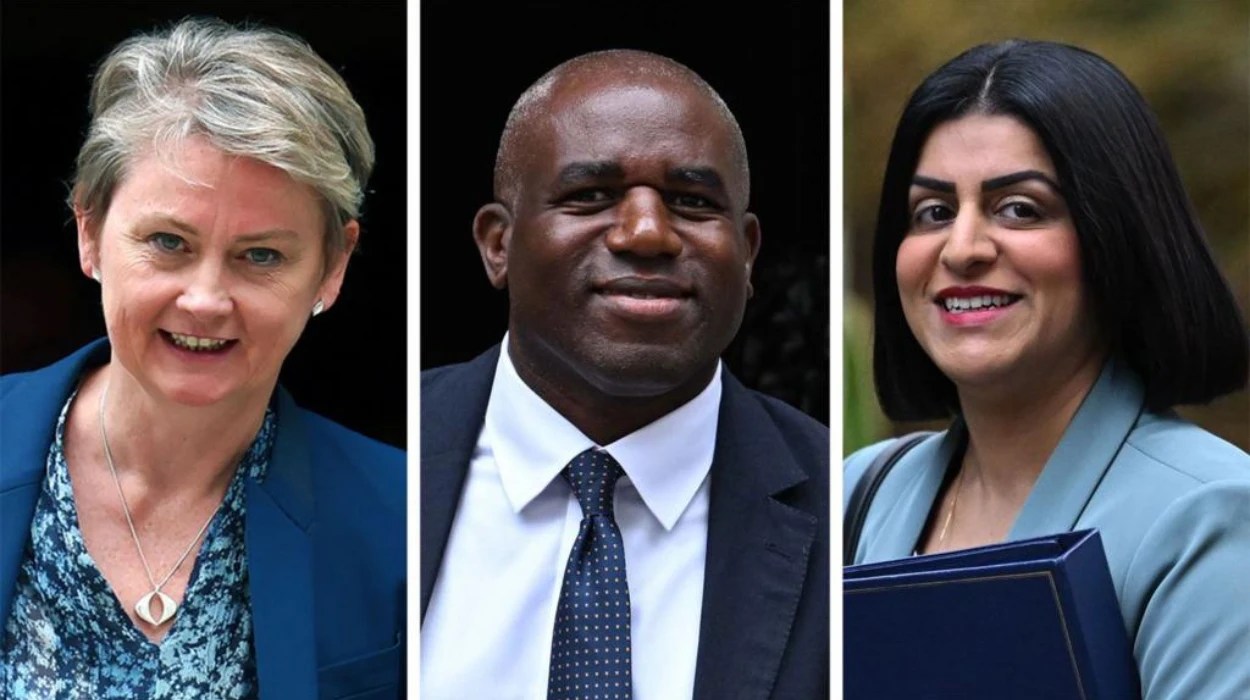David Lammy (Parliament Politics Magazine) – UK foreign minister David Lammy has been appointed deputy prime minister, replacing Angela Rayner, who resigned amid a mounting tax scandal.
Lammy was promoted to deputy prime minister as part of a large cabinet upheaval that followed Rayner’s resignation on Friday for violating the ministerial code by failing to pay taxes on her apartment.
The Labour Party, which now lags behind hard-right firebrand Nigel Farage‘s Reform UK party in national surveys, is in disarray following the departure of Rayner, who was widely seen as a left-wing bulwark and a possible successor to Prime Minister Keir Starmer.
Rayner acknowledged in a letter to Starmer on Friday that she “did not meet the highest standards” and that she would step down as Labour’s deputy leader and housing minister.
“I deeply regret my decision to not seek additional specialist tax advice,”
she said, having last week admitted to underpaying a surcharge on the flat. She said she took “full responsibility for this error”.
Starmer, whose government has endured a series of crises since taking power in July 2024, replied that he was “very sad” to lose her from government, but added:
“You will remain a major figure in our party.”
“In losing her, Keir Starmer loses perhaps the closest link the Labour Party has to its working-class roots,”
reported Al Jazeera’s Jonah Hull from Birmingham in the UK.
According to the prime minister’s office, Yvette Cooper was also transferred from the interior ministry to the position of foreign secretary as part of Starmer’s reorganization. Cooper is replaced as home secretary by Shabana Mahmood, the former justice secretary; Lammy now serves as both deputy prime minister and justice secretary.
Following earlier allegations that they had been fired, House of Commons leader Lucy Powell and Scotland Secretary Ian Murray announced their departure from government in comments released on Friday.
Powell claimed in a post on X that Starmer had informed her that he planned to choose a new Commons leader to take her place.
After days of rumors that she had saved 40,000 pounds ($53,000) by deleting her name from the deeds of another home, Rayner revealed on Wednesday that she had underpaid so-called stamp duty on a coastal flat in southern England.
The laws “entailed a considerable degree of complexity,” according to ethics chief Laurie Magnus, who also acknowledged that Rayner had been informed twice that the reduced rate of stamp duty applied.
That guidance, however, was qualified by the acknowledgement that it was not professional tax advice.
Magnus felt Rayner “could not reasonably be said to have satisfied the highest conceivable standards of proper conduct,” because Rayner did not ask for more help.
Rayner grew up in hardship, was a single mother at age 16, worked her way up from the shop floor to become union representative, and maintained a lifelong association with the Labour Party.
She is a foremost target for political assault from the Conservatives and the right-wing media and is a leading candidate to become our next leader post-Starmer.
Many view her passing as a relevant setback for Starmer who has been trying to resuscitate his ailing administration since his disastrous summer, when he faced anti- immigration demonstrations and economic stagnation.
Rory Challands reporting from London, questioned if he would be successful, given that UK voters who were “disenchanted” with the mainstream Labour and Conservative parties were turning to Nigel Farage’s Reform UK party for its “flashy right-wing populism.”
What immediate policy shifts might follow Lammy replacing Rayner in government?
Lammy’s appointment is being characterized as Keir Starmer’s attempt to stabilise the government after Rotherham and Rayner’s tax scandal will take precedence, and the immediate focus will likely be on recovering the confidence of the public and party rather than making revolution in policy.
Given Lammy’s previous role as shadow foreign secretary and his new role as justice secretary, we might expect to see more scope for a greater focus on justice reforms in the legal system, and perhaps even the acceleration and revisit of policies around policing/sentencing/prison reforms.
Rayner also held the Secretary of State for housing portfolio; Steve Reed has taken the housing brief. There are several existing housing commitments, most notably around housebuilding, and it is assumed that these commitments will remain.

